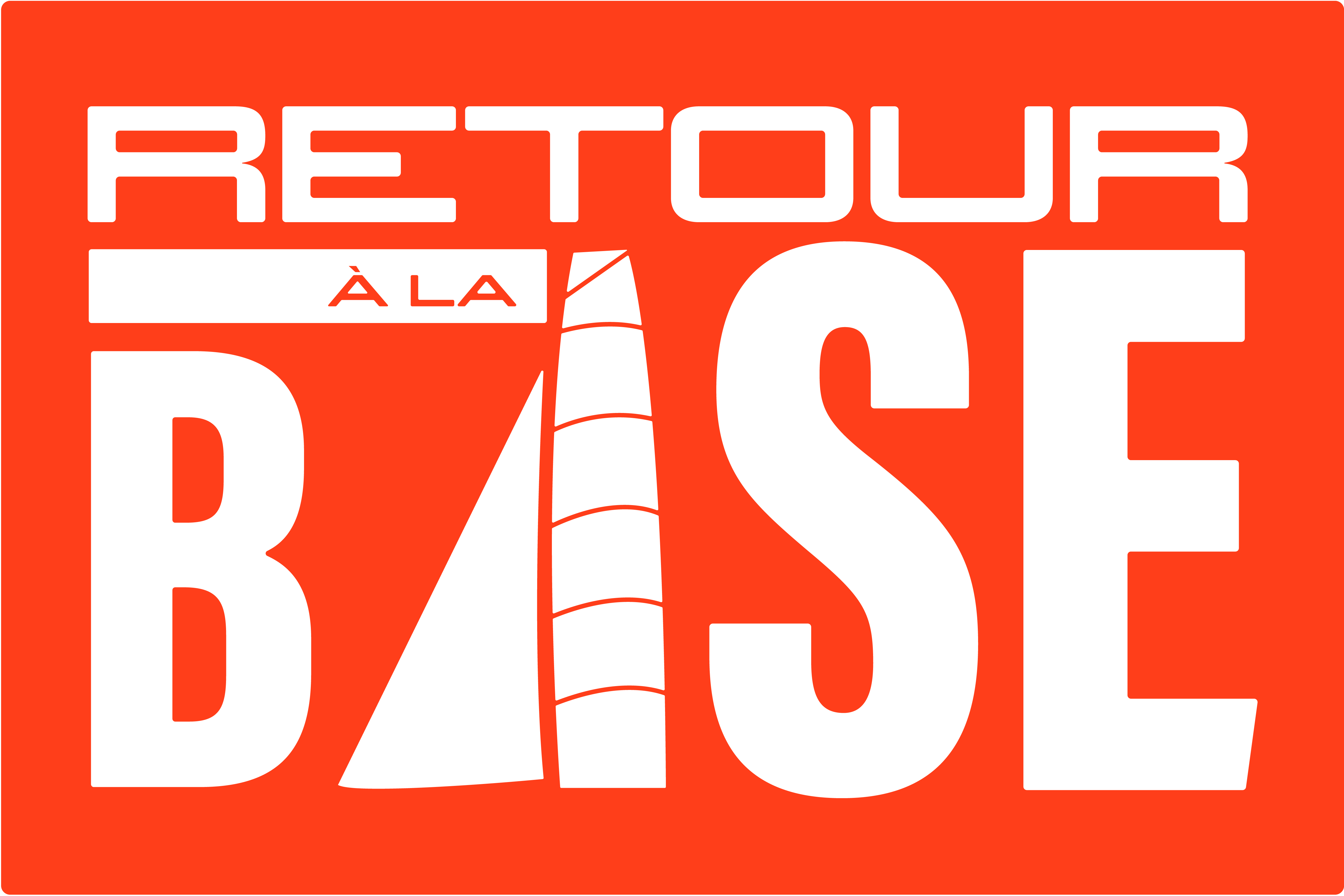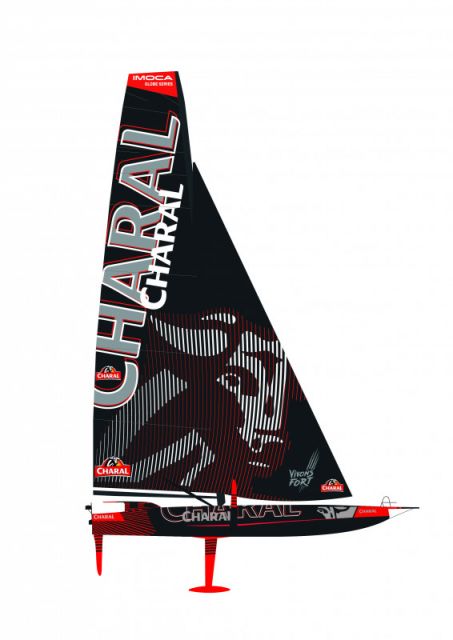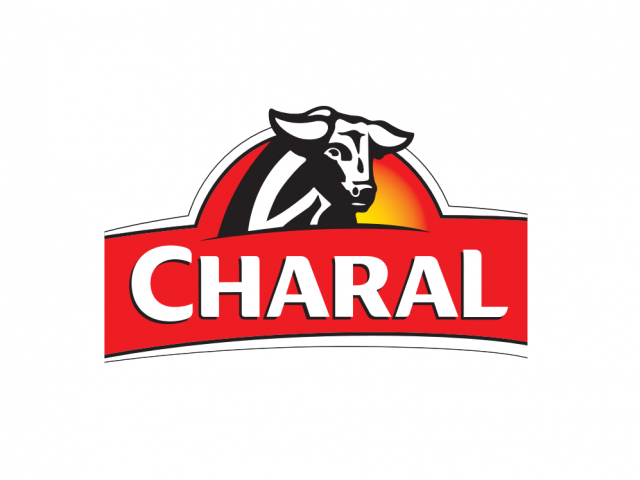
A child of Morlaix Bay, Jérémie Beyou discovered the sea thanks to his father. Over the past 20 years, he has built up one of the most impressive track records in ocean racing. A seasoned and passionate sailor, both single-handed and double-handed, the Breton skipper stands out for his tenacity and perseverance in raising the bar a little higher.A child of Morlaix Bay, Jérémie Beyou discovered the sea thanks to his father. Over the past 20 years, he has built up one of the most impressive track records in ocean racing. A seasoned and passionate sailor, both single-handed and double-handed, the Breton skipper stands out for his tenacity and perseverance in raising the bar a little higher.
It was among the pebbles and currents of Morlaix Bay that he discovered sailing, first in an Optimist and then in a Moth Europe, alongside other future illustrious sailors from the bay, Armel Le Cléac'h and Nicolas Troussel. After taking part in the Tresco and the Tour du Finistère on his father Alain's quarter-toner, as well as his first Figaro races alongside local sailors, Jérémie set off at the age of 20 on the Solitaire du Figaro. Without a penny to his name, with his sister as his préparatrice and his boat as his hotel room, but already with a huge thirst for learning. This was followed by eight consecutive participations and a first victory in 2005, at the end of an anthology leg between Cork and Port Bourgenay, won ahead of Michel Desjoyeaux.
Jérémie then became infatuated with the Vendée Globe single-handed round the world race, with his first participation in 2008, which was too quickly interrupted due to equipment failure (spreaders), a second in 2012, which again came to nothing (keel jack), and a third in 2016, which saw the Finistère native, deprived for much of the race of weather files and communication with the outside world, go all out to take a fine third place.Jérémie then became infatuated with the Vendée Globe single-handed round the world race, with his first participation in 2008, which was too quickly interrupted due to equipment failure (spreaders), a second in 2012, which again came to nothing (keel jack), and a third in 2016, which saw the Finistère native, deprived for much of the race of weather files and communication with the outside world, go all out to take a fine third place.
In 2020, Jérémie was one of the favourites for the Vendée Globe with his new, reliable hydrofoil IMOCA. Unfortunately, at the end of the fourth day of racing, he was forced to return to Les Sables d'Olonne for repairs and then set off again. He set off again 9 days, 2 hours and 50 minutes after the official start. He finished 13th.
With his loyal partner Charal, Jérémie built a second IMOCA, Charal 2, designed by the architect Sam Manuard. This new boat is bold and versatile, with a spatulate hull, which Jérémie took to 3rd place in the Route du Rhum 2022.
Firstly, to get back in touch with my boat single-handed, before a big solo season to follow in 2024. We've done a lot of double-handed sailing this year, so I'm happy to be doing a bit of solo sailing again, to get back on track and find my boat on its own. After that, it's still a race: if I'm at the start, I want to get a good score. So I've got a twofold objective: to get my feeling back, but also to get a good result.
I was one of the first to settle in Lorient La Base, in 2007, with my first IMOCA. And I haven't moved since. The site is perfect, we have an excellent quality of work due to its geographical location which corresponds perfectly to our activity. The marina is just the right size, the channel, the harbour and the island of Groix protect us from gales, and we have access to the sea whatever the tide... It's a setting in which we operate in superb conditions. Our base was very simple at the beginning, and we've developed it as the projects and the team have grown. So I'm very attached to it, even though I'm originally from North Finistère. I've also set up in Lorient on a personal basis, and I'm very happy to be here and that a lot of other teams have set up here too. It creates a sense of competition, and there's a real closeness between the teams and the suppliers, which is vital if we are to be able to react quickly to our projects. Everything moves very fast in motorsports, and we need these experts to ensure that our boats evolve quickly.
Having seen the start of the Solitaire du Figaro in Lorient, the Transat AG2R and stopovers in the Volvo Ocean Race, I think it's really important to have big events around La Base. I often compare it to Silverstone, where most of the F1 teams are based, but which also has the advantage of having its own Grand Prix every year. We were missing this type of major event. This is now the case with the Retour à La Base, followed by the Transat CIC in 2024. I think it's great that the urban area has invested in this, there need to be links between events, between classes, with an introductory dimension for young people. We have everything we need to ensure that our sport develops further and continues to shine, both nationally and internationally, now that our Australian and New Zealand friends know where Lorient is!
The reflexes should come back fairly quickly, as I've already done quite a lot of solo sailing! But this year, the boat is really geared up for double-handed sailing, for the Transat Jacques Vabre course, with specific choices for two-handed sailing. We're not going to be able to change everything at the finish, so I'll have to adapt, with a few minor physical adjustments to make. But self-management should come back quickly.
After a fairly long start to the season, we'll still have to find the time to rest properly between the two races. Everyone will be pretty burnt out and we'll need to recharge our batteries, and that's where the challenge will lie. Physically and mentally, we'll need to recharge our batteries and regain our freshness. The result of the TJV should also have a big influence on our ability to recover or not. We'll need to be able to detach ourselves quickly from the previous race so that we don't have to think about anything straight away, and not immediately about the next one. Create a psychological buffer between the two races, where you rest, sleep and try to eat well, so that you can really make the break. Do other things too, and don't get too anxious about the next one in a short space of time. It'll be easier not to brood if you've had a good run beforehand! To switch off, you shouldn't hang around the pontoons too much either!
2022
Route du Rhum - 3rd
Défi Azimut-Lorient Agglomération - 3rd
2022
Vendée Arctique - 2nd
2021
Transat Jacques Vabre - 3rd
2020
Vendée Globe - 13th (89d 18h 55m 58s)
2020
Défi Azimut - Winner
Vendée-Arctique-Les Sables d'Olonne - Winner
2019
Transat Jacques Vabre - 3rd
Défi Azimut - Winner
Rolex Fastnet Race - Winner
2016
Vendée Globe - 3rd
Transat NY - Vendée - Winner
2014
Route du Rhum - 2nd
2013
Transat Jacques Vabre - 3rd with Christopher Pratt
2011
Transat Jacques Vabre - Winner with Jean-Pierre Dick
2018
Volvo Ocean Race - Winner with Dongfeng Race Team
2015
Solitaire du Figaro 2015 - 4th
2014
Solitaire du Figaro - Winner
2004
La Solitaire du Figaro - 4th
2001
La Solitaire du Figaro - 4th

Name: Charal
Architect: Sam Manuard
Building: 2022, CDK Technologies
Launching: 07/11/2022
Lenght: 18,28m
Beam: Unknown
Draught: 4,5m
Weight: NC
Mast height: 29m
Mast type: Wing mast
Foils: yes
Upwind: Unknown
Downind: Unknown

France's leading meat brand, Charal was born in 1986 out of a desire to simplify consumption and preserve the quality of fresh meat thanks to a ground-breaking technological innovation in the world of meat with the Hebdopack® preservation process. Since then, Charal has continued to innovate to provide consumers with ever greater safety, quality and pleasure, and has become the leading brand of butchery products sold in the fresh and frozen sections in France. France's leading meat brand, Charal was born in 1986 out of a desire to simplify consumption and preserve the quality of fresh meat thanks to a ground-breaking technological innovation in the world of meat with the Hebdopack® preservation process. Since then, Charal has continued to innovate to provide consumers with ever greater safety, quality and pleasure, and has become the leading brand of butchery products sold in the fresh and frozen sections in France.